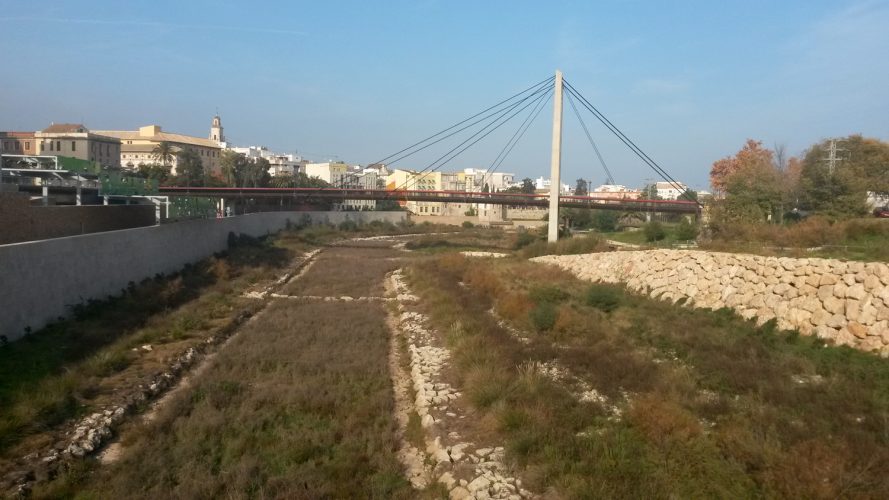In the second episode of ‘Ciència propera’, Pilar Donat, professor and biologist at the Polytechnic University of Valencia, reflects on the importance of investing in research and having heterogeneous teams for their development. Teams that include experienced middle aged people (seniors, to lead) and young people who provide high doses of creativity, critical to any search task. Donat also talks about DNA studies in flora and fauna which are underway on the campus of Gandia. For example: They are analysing some plants which can adapt to high salinity environments to try to move this evolution to other species living in hostile environments. Or we will find out why some of our key native species are disappearing from our environment.
The report in the program will address environmental water flow and the importance of conservation. The Serpis River does not reach the three percent set by the government. A threshold not only insufficient but also not fulfilled according to Professor of the UPV, Francisco Martinez Capel. Capel raises the following question: could we survive on only three percent of the food that we consumed 10 years ago? We discover the consequences and possible solutions to alleviate this situation. Capel, also reminds us that the aquifers of drinking water contain pesticide residues. Therefore, it is essential to control the indiscriminate usage in different areas.
In the third program, ‘Ciència propera’ deals with tourism. On the one hand, we interviewed Paloma Herrera and Lluís Miret, teachers at the UPV, to bring us their sociological study on fishing tourism. Visitors embark on a normal fisherman’s working day to come into close contact with this trade, much unknown to most, it is one of the main objectives of this type of tourism. The intention, on the one hand, is to provide new ideas and diversify the sector and to help with their survival (we will hear examples), moreover, to contribute to the sustainability of an art that has nothing to do with industrial fishing, and that among other things, directly affects our food.
In the report we talk about experiential tourism and how this method will help increase the value of a destination. Professor Maria Jose Viñaals, UPV, explains why the awakening sensations through the senses generates a perennial memory in the tourist.
The proper design of products which do not frustrate the expectations of visitors and a team of technicians who are trained to implement them are the necessary tools needed to create tourism experiences.
‘Ciència propera’ can be heard on Radio Gandia, Cadena SER, Mondays in the program Hoy por Hoy (approximately 12:30) and at the broadcasting station of the UPV, Monday at 16:00.
It is a program funded by the Spanish Foundation for Science and Technology (FECYT) of the Ministry of Economy and Competitiveness and sponsored by the Department of Innovation UPV Gandia Campus.
Here you have all the broadcasted shows up to now, we hope you enjoy them.
